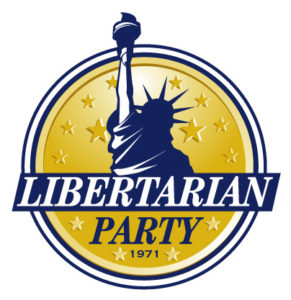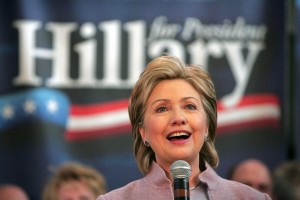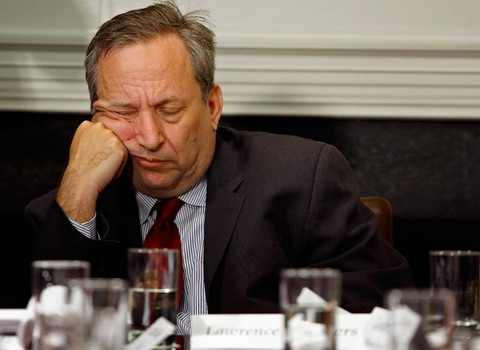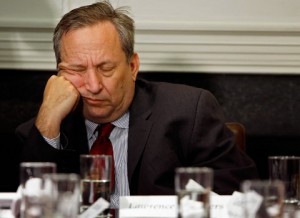 This Presidential election is absolutely not about economic policy.
This Presidential election is absolutely not about economic policy.
To pretend that you’re choosing your presidential candidate in the 2016 election based on economic policy – after this campaign season – is as absurd as claiming you used to purchase Playboy for the articles.
Even so, let’s pretend for a moment that this election was about economic issues. Where do the two major candidates stand?
Trade
First, Trump. Trump introduced himself to the Presidential race in June 2015 by threatening to impose a 35% tax on manufacturing from Mexico. He frequently claims that he would unilaterally renegotiate better trade deals with China, Japan, Saudi Arabia, and Mexico. Although the Republican Party historically has a clearer track record than the Democratic Party of supporting increased international trade, Trump appears somewhat to the left of Bernie Sanders when it comes to trade liberalization. I have the strong impression that he not only does not support international trade, but he also does not really understand how trade agreements work. Trade wars make almost everyone poorer.
Clinton claims to support increased trade, but has chosen to oppose the already-negotiated Trans-Pacific Partnership (TPP), because it might not create jobs, at good wages, while protecting national security. See, again, that’s not how international trade treaties work. Nobody gets a guaranteed job, at a guaranteed “good wage” from a negotiated trade treaty. Some people over time, in fact, lose their jobs or get a worse wage, while other people – like consumers and many business owners – benefit from trade. I think she knows this. Trump appears uninformed, while Clinton appears the opposite of straightforward.
Wall Street
Trump’s stance vis-à-vis Wall Street remains unclear to me. I mean, he’s promised to lower top corporate tax rates from 35 percent to 15 percent, as well as top personal income tax rates to 33 percent, from the current 39.6 percent. That is presumably welcomed in the canyon-lands of lower Manhattan, or wherever executives expect a substantial payday.
In addition, his approach to encouraging economic growth is to roll back or lower government regulations, which might also be welcomed in some parts of Wall Street.
On the other hand, can we be certain he won’t just round up top executives like Jamie Dimon from JP Morgan and Lloyd Blankfein from Goldman Sachs and have them fight – gladiator-style while wearing giant sumo suits – in the middle of Times Square? The winner gets his Wall Street firm automatically nationalized and re-branded “Trump Money,” while the losing executive is drawn-and-quartered by the Budweiser Clydesdales from the 9/11 ad, on live television. Are we sure that won’t happen? Consider the ratings potential! Other than that, I think he’d be fine for Wall Street.
Clinton’s approach, by contrast, appears more predictable. She posits that “Wall Street must work for Main Street,” risky firms must be monitored more closely, and that senior executives must be held responsible for firm losses, each of which might make Wall Street wary of her presidency.
On the other hand, you and I both know what those paid speeches were for. I personally would have no problem getting paid $1.8 million to give 8 boring speeches to Wall Street firms. In fact, I’m just checking my calendar now…Hang on, let’s see, yup, I’m wide open for the next few weeks, so Lloyd, send me a Snap.
Taxes
Speaking of taxes, Trump would repeal the Death Tax, otherwise known as the estate tax, and otherwise known as my favorite tax.
Clinton proposes increasing estate taxes by reverting back to their 2009 level, and increasing taxes on some of the largest estates. I prefer Clinton’s approach, naturally.
Both Clinton and Trump have stated support for eliminating the carried-interest tax break enjoyed by private equity and hedge fund owners, for which I applaud them both. Neither will do it because #campaigncontributions but still, it’s a great thought.
As a side note on taxes: I have zero problem with Trump’s tax return showing nearly a billion dollars in business losses in 1995, which might have relieved him of paying income taxes for the following 15 years or so. I’m sorry to say, Virginia, that the income tax game is a bit rigged in favor of the wealthy. We shouldn’t expect people to pay taxes they don’t legally owe. Trump’s tax-free status is probably entirely legal based on our current tax code, so don’t get mad at him for that.
Energy Policy
Trump proposes a grab-bag of energy-policy liberalization approaches. On his website he announces plans to “rescind all job-destroying Obama executive actions. Mr. Trump will reduce and eliminate all barriers to responsible energy production,” which includes encouraging coal production, and additional oil and gas drilling, in particular on federal lands. It seem plausible to me that this anti-regulation approach would lower the cost of energy for most people and businesses, and thereby provide economic stimulus to the economy.
Clinton has a more mixed approach, which we can intuit from the fact that her official campaign “energy policy” presentation is really expressed in terms of environmental policy, climate change, and an economic safety net for displaced coal workers. As Secretary of State she promoted the “Global Shale Gas Initiative” (read: she promoted fracking), although she has subsequently called for “smart regulations” of the industry in her book Hard Choices. We should probably expect higher energy costs as a result of her administration.
Also, maybe our coastal cities won’t be underwater in twenty years? It’s a trade-off.
Love the gridlock
We have had imperfect candidates for a long time. Often we even elect them to the highest office. So far at least, the inertia of our constitutional system has kept our electoral mistakes manageable. We’ve had a good political run surviving 228 years of imperfect leaders. I’m going to adopt the optimistic view that we’ll survive this next President, and hopefully the next 228 years as well.
The “Washington gridlock” we all claim to hate may be our best insurance against candidates we don’t like. The system, by design, stymies the Executive branch, and that’s a good thing. I’m frightened by this election, but I’m trying to take the long view. I will certainly vote.
Finally, I mentioned Playboy above because economic policy means absolutely nothing this time around.
The centerfold of this campaign has been all about sexual harassment, locker-room talk, “stamina,” testosterone levels, former President Bill Clinton’s womanizing, fat-shaming, and tiny fingers. I suspect we will all vote according to where we stand on these important issues, not the economy.
A version of this post ran in the San Antonio Express News and The Houston Chronicle.
Please see related posts:
Trump – Sovereign Debt Genius
Death and Taxes
Carried Interest Loophole
The Primary Candidates
Post read (236) times.








